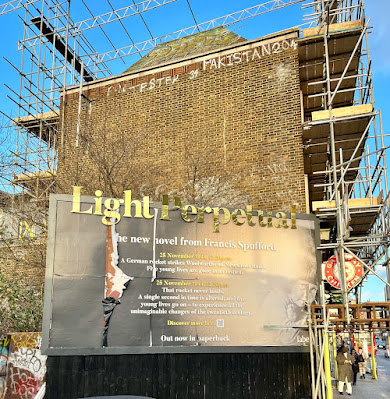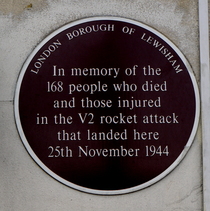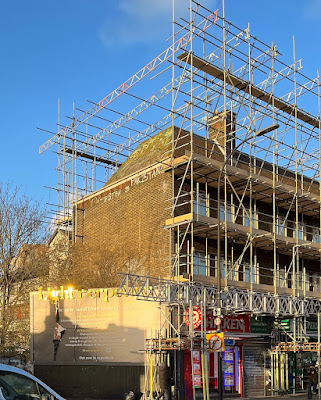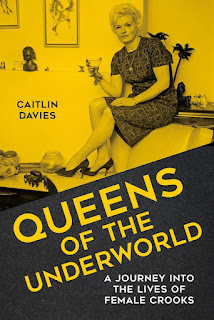 |
| Carrington House - the building still stands |
Monday, February 21, 2022
Russian Revolutionaries in New Cross/Deptford, 1907
Saturday, February 19, 2022
Light Perpetual - remembering the New Cross V2 disaster
Tuesday, February 15, 2022
Reweirding London: Authors on the Secret City at the Amersham Arms
'Reweirding' put on interesting talks and events at Conway Hall and elsewhere. Next month they are coming to the Amersham Arms in New Cross for 'Reweirding London: Authors on the Secret City', an event that will feature talks from the authors of three recent books on underground London - physically and metaphorically.
Speakers include:
Caitlin Davies – 'Queens of the Underworld: A Journey into the Lives of Female Crooks'
Lara Maiklem – 'Mudlarking: Lost and Found on the River Thames'
Tom Chivers – 'London Clay: Journeys in the Deep City'
All this plus short films on London from Video Strolls.
24 March 2022 7pm – 10 pm
Venue: The Amersham Arms, 388 New Cross Road, London SE14 6TY
£7 / £5 concessions, advance tickets advised available here.
Books available from The Word Bookshop, 314 New Cross Road SE14 6AF
Wednesday, February 09, 2022
Deptford Slavery Map Launch
A campaign group has been set up with the goal of establishing a Museum of Slavery and Freedom (M ō S a F) on the site of the old Royal Naval Dockyard on the bank of the River Thames at Deptford: 'The museum will focus on the role of Deptford, London and the Royal Navy in the triangular slave trade and demonstrate how the UK grew rich as a result of their activities. It will celebrate the way freedom from the trade was won and explore how the legacy of slavery lives on today'.
On Saturday 12th February at 3 pm they will be launching a new Map of Deptford's links to slavery and freedom. The event will take place at the studio of Empathy & Risk, 1 Borthwick Street, London SE8 3GH (by Twinkle Park). Among those present will be Dr Helen Paul (Lecturer in Economics and Economic History, University of Southampton), who researches the slave trade, and artist Keith Piper - among other things a founder of the BLK arts group.
 |
| Keith Piper, Go West Young Man (1987) |
MōSaF say: 'There are few memorials to the slave trade in the UK’s capital, an astounding gap in the country’s cultural landscape. Our railway system, cotton and coal industries, the City of London and the Country House movement all owe a substantial economic debt to the trade in humans. The MōSaF Map is unique because it goes local. Deptford provides a historical snapshot of how, and exactly where on our streets, our citizens and businesses engaged in the trade in humans. Deptford is also home to key landmarks in the fight for abolition'
See previous Transpontine posts on this subject:
Haberdashers, Hatcham and Slavery
Saturday, February 05, 2022
Revolt at the Royal Hospital School, Greenwich 1840
'Revolt in the Royal Naval School, Greenwich Asylum'
(Kentish Gazette, 22 September 1840)



























